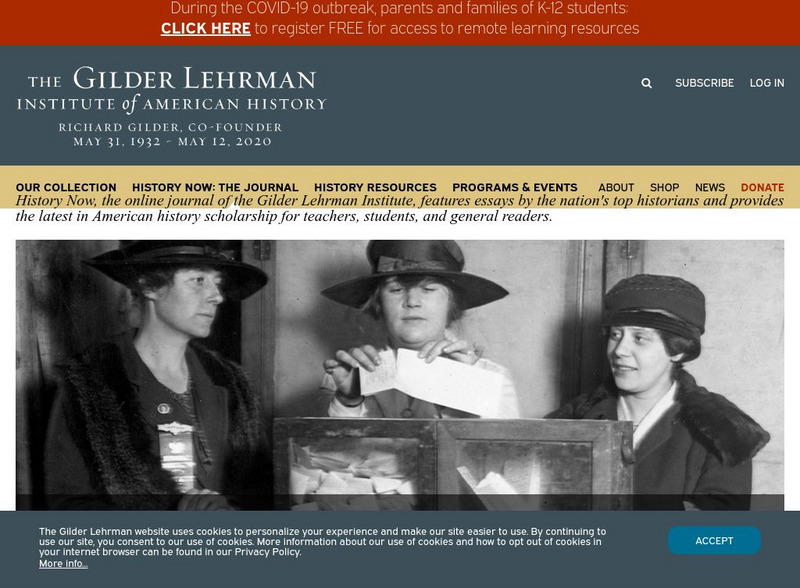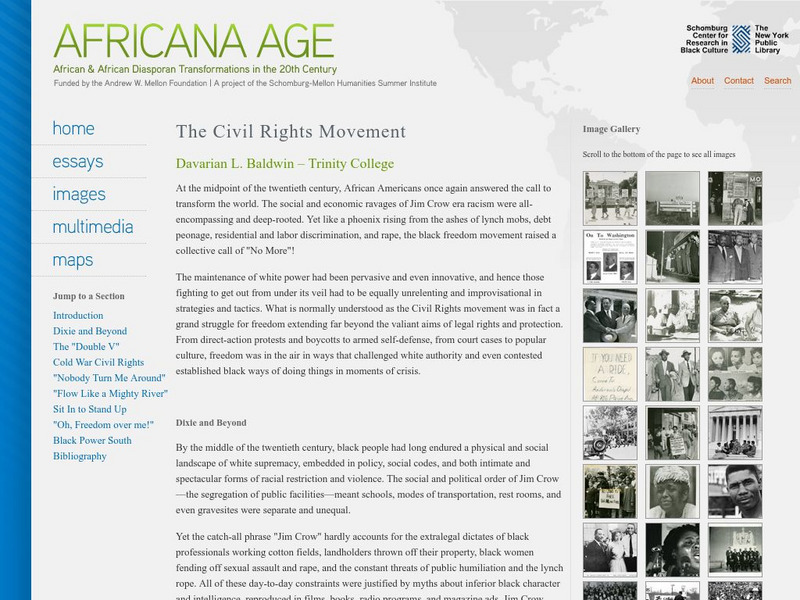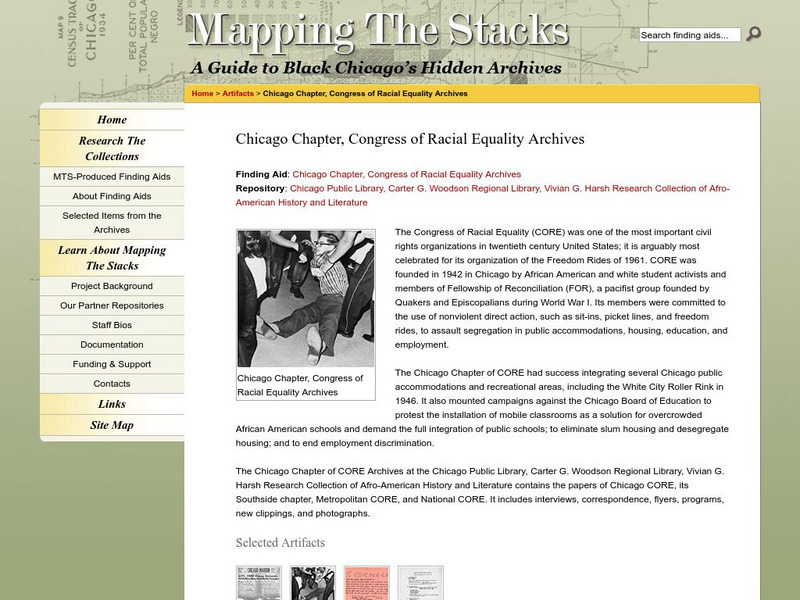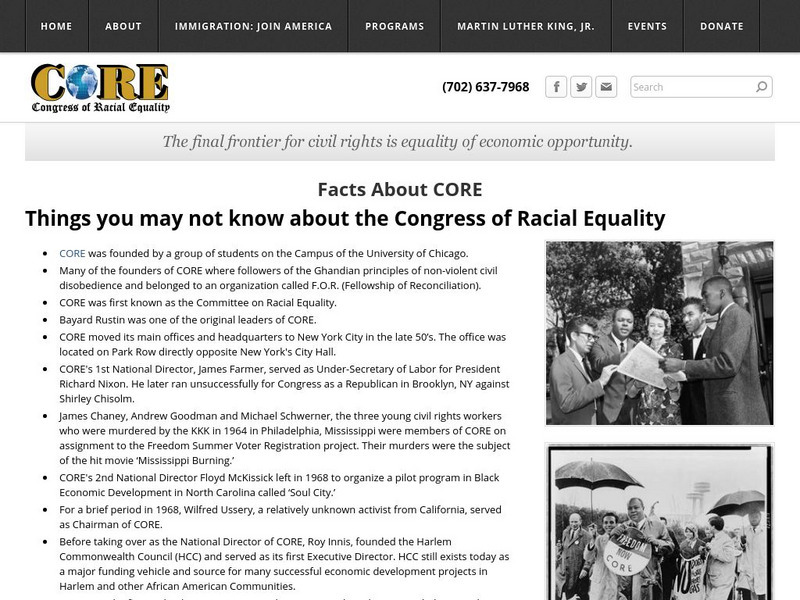Gilder Lehrman Institute of American History
Gilder Lehrman Institute: History Now: Martin Luther King, Jr.'s Legacy
[Free Registration/Login Required] This resource provides information about Martin Luther King, Jr.'s impact on American history. In addition, there are links to related topics.
Other
New York Public Library: Africana Age: The Civil Rights Movement
This is an extensive review of the Civil Rights movement from the 1940s to the 1960s. Read about the ways African Americans protested discrimination in employment and education over several years. Be sure to click on the images to find...
John F. Kennedy Presidential Library & Museum
Jfk Presidential Library & Museum: James Farmer
Letters and telegrams from the co-founder of the Congress of Racial Equality (CORE), James farmer, help tell the story of his fight against segregation during the Kennedy years.
Curated OER
National Park Service: People of the Civil Rights Movement
A summary of the people and events that enacted the successful civil rights movement of the 1960s, well-organized and includes many photos.
University of Chicago
Mts: Chicago Chapter, Congress of Racial Equality Archives
Learn about the Chicago Chapter of CORE, or the Congress of Racial Equality, one of the most important civil rights organizations in the United States.
Stanford University
Mlk and Global Freedom Struggle: Congress of Racial Equality
Encyclopedia entry explores the involvement of the Congress of Racial Equality (CORE) in America's civil rights struggle throughout the late 1950s and into the mid-1960s.
Other
Congress of Racial Equality: Facts About Core
This site contains in-depth information about the Congress of Racial Equality, or CORE, and its purpose and history.
Black Past
Black Past: Wiley, George Alvin
This concise encyclopedia entry recounts the life of George Alvin Wiley, founder of the civil rights organization, CORE.
Made From Media
Made From History: Was the 88th Congress' Racial Split Regional or Partisan?
Several infographics illustrate the racial distribution of the 88th United States Congress from the 1960s.
Other
Greensboro Sit Ins: James Farmer
This resource provides a brief description of Farmer's role in support of the Greensboro sit-ins. An audio clip is included.
CommonLit
Common Lit: Themes: Justice, Freedom & Equality: What Is Fair?
This is a collection of Grade-Leveled texts (3-12) to address the question, Justice, Freedom & Equality: What is fair?" Select a grade level and a collection of on grade-level reading passages on the topic comes up. [Free account...
National Humanities Center
National Humanities Center: Toolbox Library: Desegregation Integration, Making of African American Identity: V.3
This resource presents James Farmer (1920-1999), a major figure in the civil rights movement of the 1950s and '60s, and the distinction he draws between integration and desegregation, two terms often used interchangeably and often confused.
University of Washington
University of Washington: Congress of Racial Equality (Core) Actions 1942 1970
Overview of the Congress of Racial Equality (CORE)with maps and charts showing the geography of CORE activism.
Digital History
Digital History: To the Heart of Dixie
In the early 1960s civil rights activists put the ban on segregation to the test. In 1961, "Freedom riders," boarded buses headed south to test the federal ban on segregated travel. And in 1962, the University of Mississippi was ordered...
PBS
Pbs: American Experience: Freedom Riders: James Farmer
Biographical snapshot of James Farmer, who, in the early 1960s, was responsible for initiating the freedom rides to protest racial inequality in America. .














